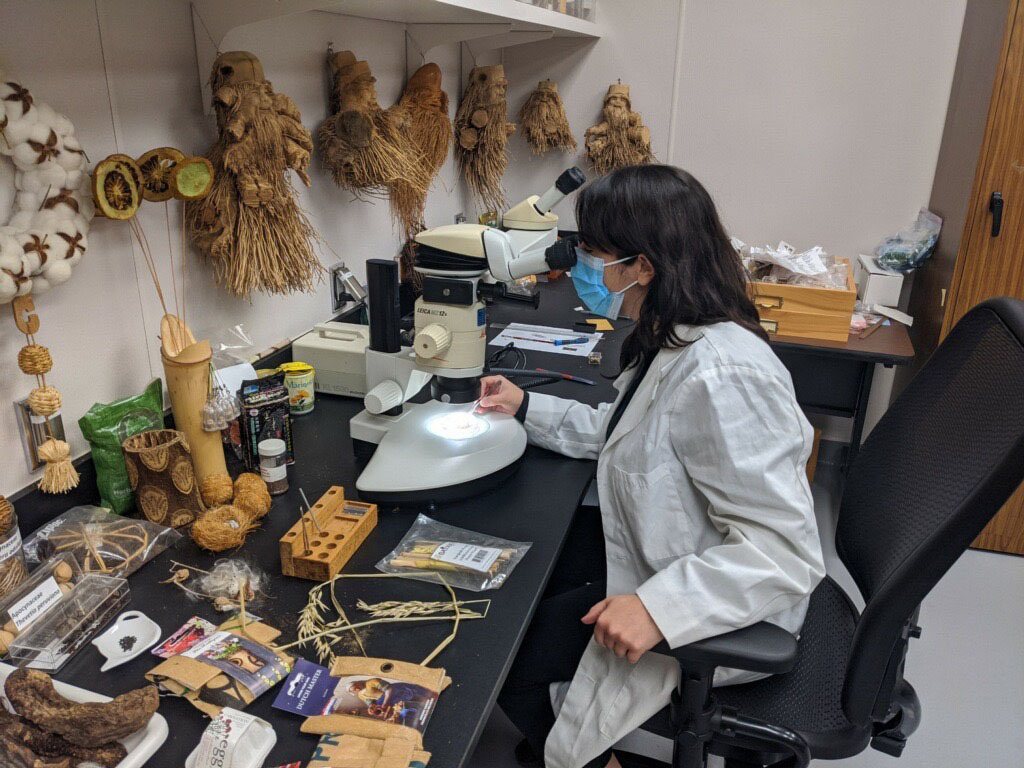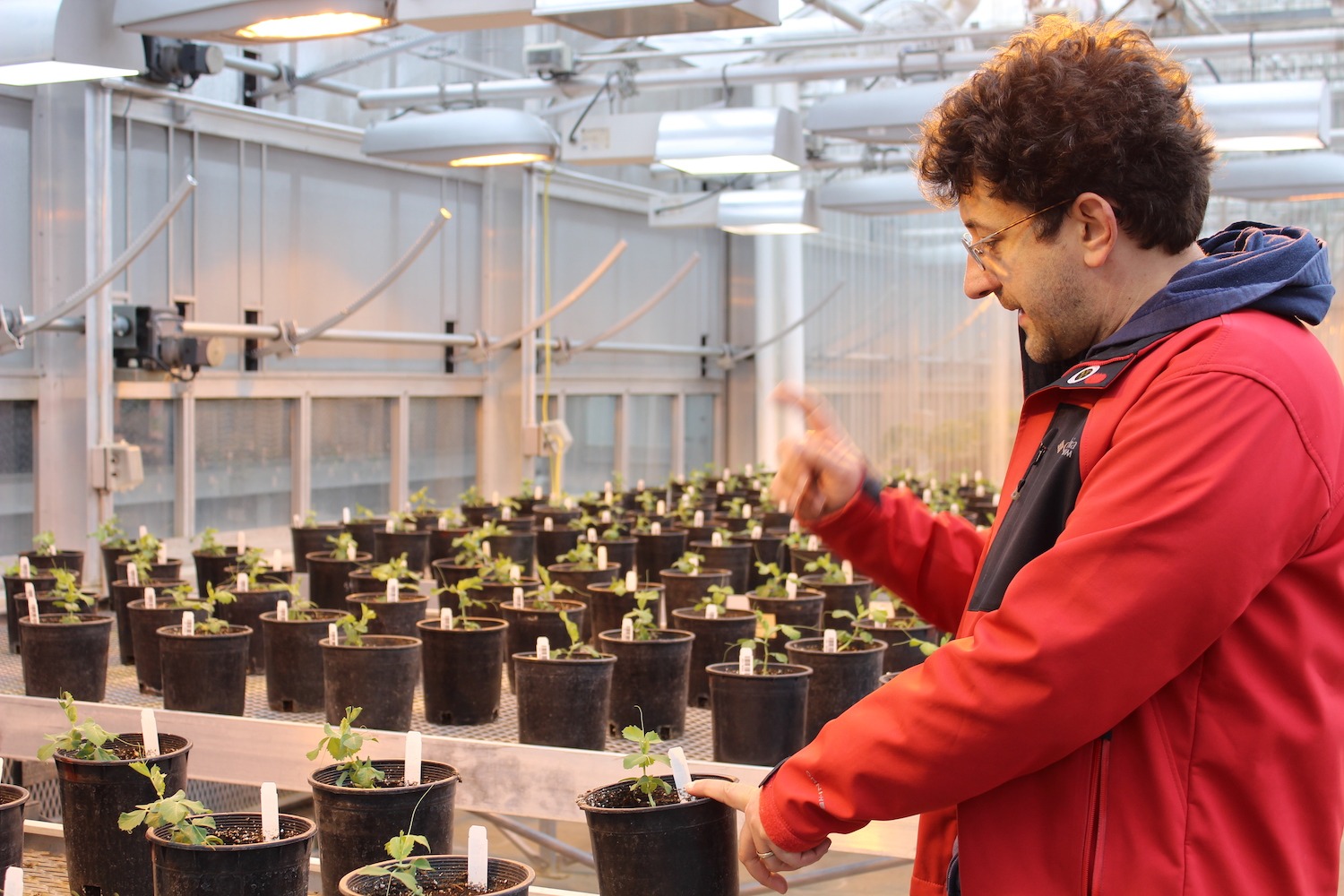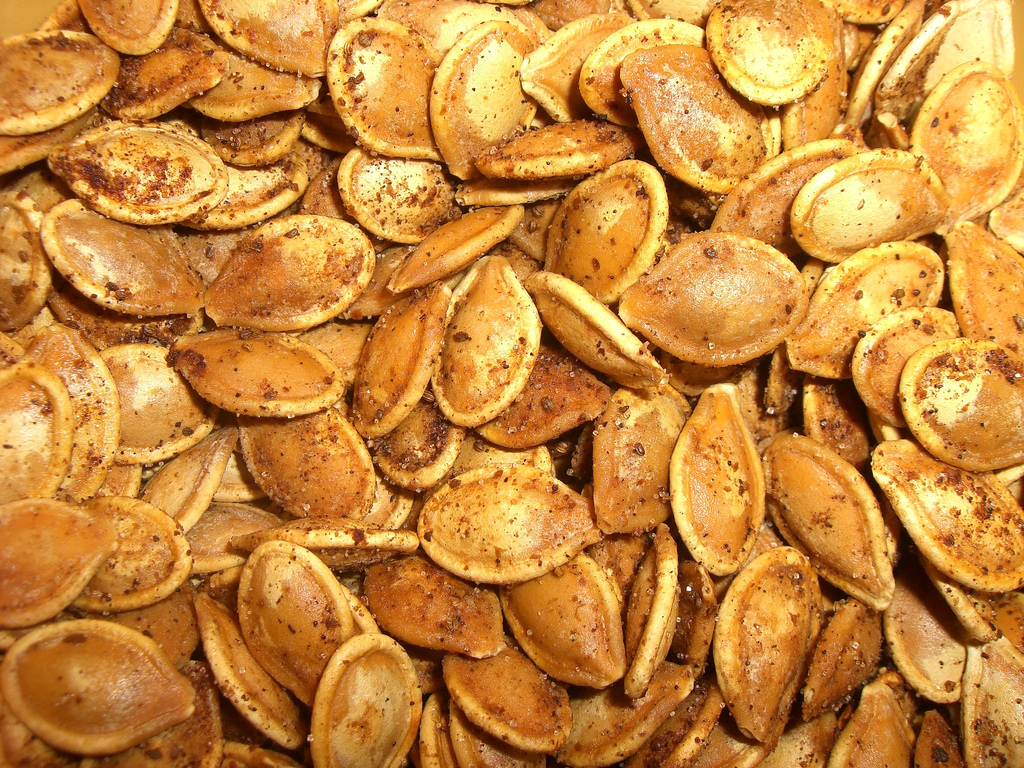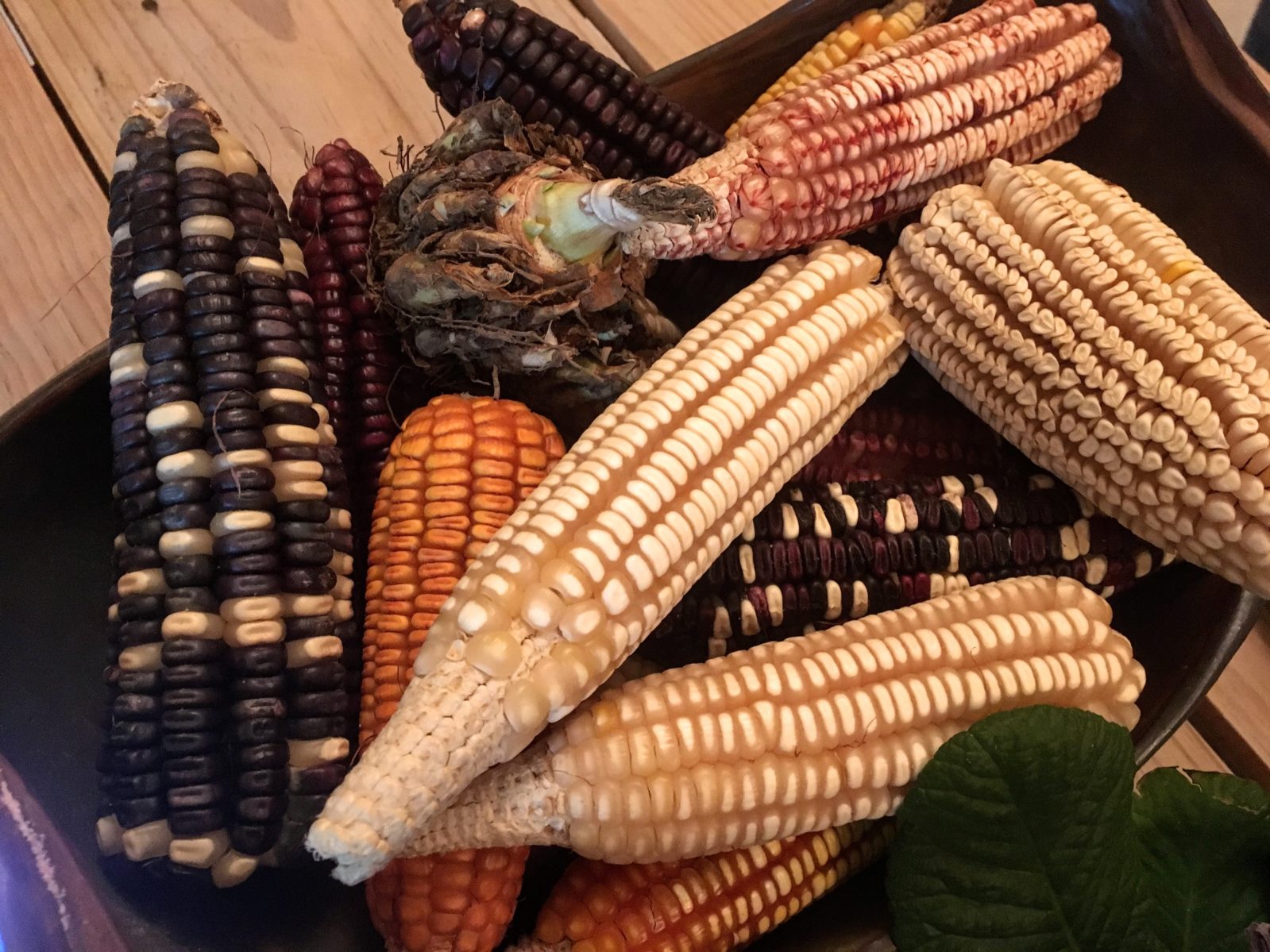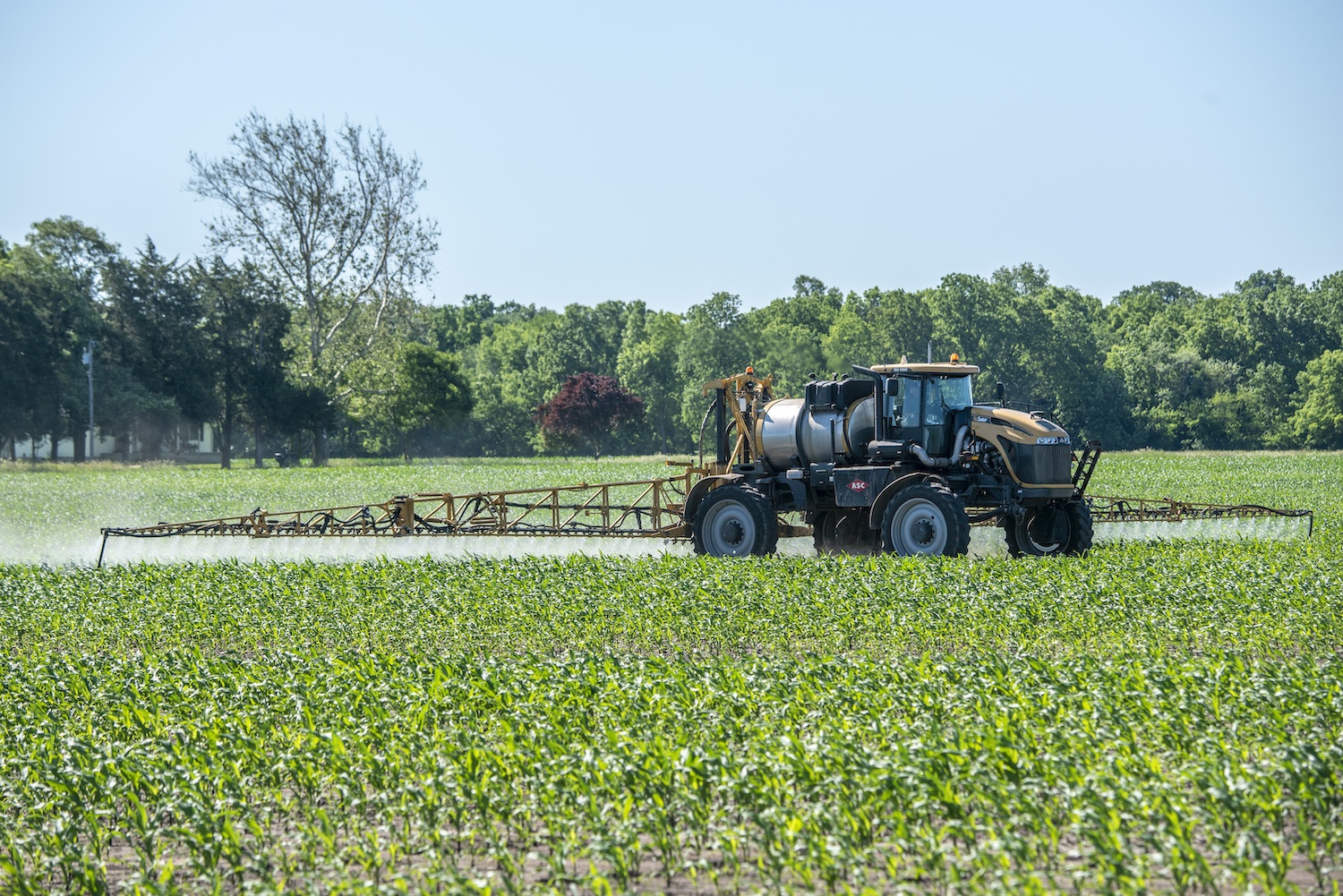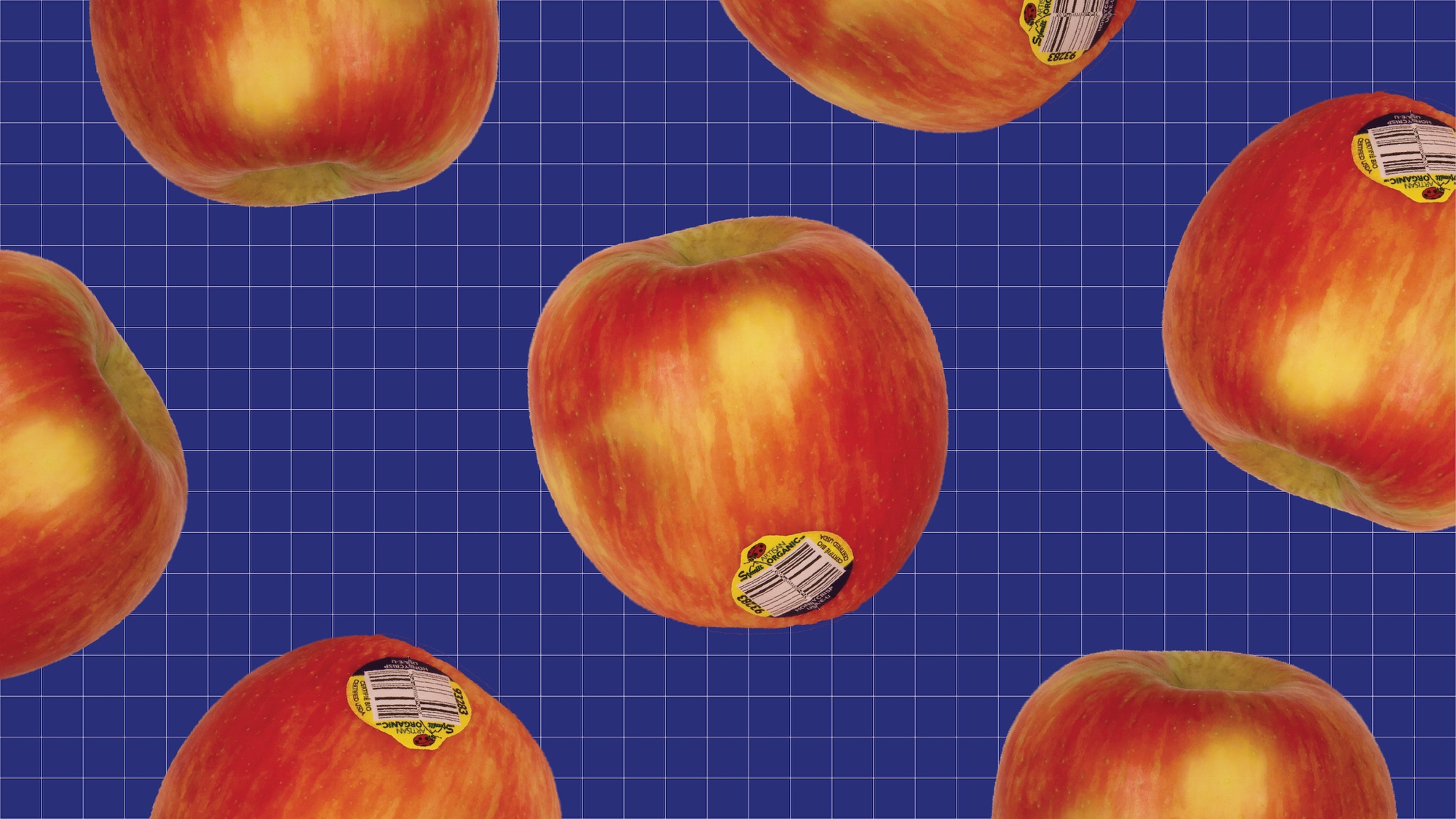The unsolicited seed packets sent to American home gardeners by Chinese companies have struck a public nerve. But experts can’t decide if it’s an innocuous marketing strategy, or something more nefarious.
(Editor’s note: This story was updated at 11:15 a.m., EST on August 7, 2020, to include additional insight from APHIS regarding screening standards at ports of entry.)
The mystery deepens—even as it becomes seemingly more… banal? Or not.
The U.S. Department of Agriculture (USDA) on Friday announced that it had identified over a dozen plant species in the packets of seeds that have arrived from China, unsolicited, in the mailboxes of hundreds of Americans—many of whom are home gardeners who buy seeds via Amazon.
So far, the department has identified vegetables like cabbage, broccoli, kale, tomato and celery; herbs like basil, coriander, rosemary, mint, sage and lavender; flowers like rose and sunflower; as well as mustard and ivyleaf morning glory seeds, a spokesperson for USDA’s Animal and Plant Health Inspection Service (APHIS) told The Counter. The public “subset of samples” will be updated soon on a department website.
Since July, Americans in at least 22 states, as well as some citizens of the U.K. and Canada, have received packets of seeds they did not order. Some were mailed in white pouches that read “China Post,” or imprinted with the words “accessories” or “ring” in Chinese. Most were postmarked from China, although some states have reported packages from Uzbekistan and Kyrgyzstan.
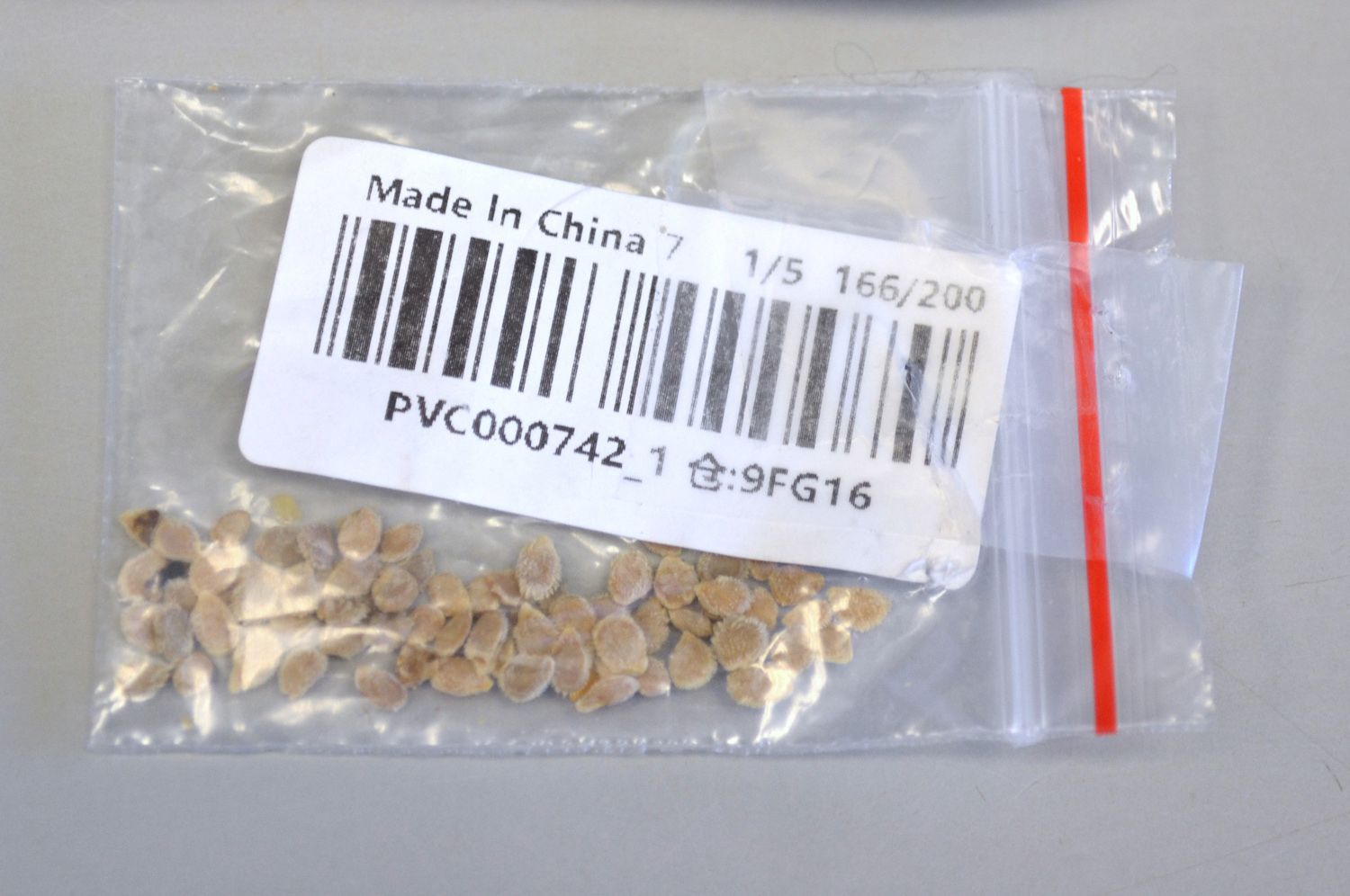
This package of seeds sent to a U.S. resident has been identified as Solanum lycopersicum—tomato seeds—by a U.S Department of Agriculture (USDA), Animal and Plant Health Inspection Service (APHIS) botanist at the John F. Kennedy Plant Inspection Station in New York. These seeds are on their way to the National Identification Services (NIS) lab in Beltsville, MD for further testing to determine if they carry any pests or diseases of concern to U.S. agriculture.
Agriculture departments in all 50 states have since issued warnings not to plant the unknown seeds, stating that, if they go into the ground, they have the potential to “wreak havoc on the environment,” displace or destroy native plants, or spread diseases that could damage crops. Local and federal officials have urged recipients not to open the packages and alert local authorities if they receive one.
Some warnings have been more dire. “At this point in time, we don’t have enough information to know if this is a hoax, a prank, an internet scam or an act of agricultural bio-terrorism,” Kentucky’s agriculture commissioner told CBS News. “We have the safest, most abundant food supply in the world and we need to keep it that way.” In an echo of the anthrax scare of 2001, he urged people to “put the package and seeds in a ziplock bag and wash your hands immediately.”
But some folks have gone right ahead and planted them. An Arkansas man told The New York Times that he ordered blue zinnia seeds from Amazon, and when he got the package about two months ago, it also contained seed packets he did not order. “It looks like a giant squash plant,” he said, adding that it was “really pretty.”
Although USDA doesn’t suspect this is anything more than an elaborate scheme to juice online seller reviews—more on that in a moment—high-ranking politicians aren’t sufficiently convinced. On Tuesday, Kentucky’s Republican Congressman James Comer sent a letter to USDA, urging the department to determine if the Chinese government is behind the seed packets.
“At this point in time, we don’t have enough information to know if this is a hoax, a prank, an internet scam or an act of agricultural bio-terrorism.”
Comer, who chairs the House committee on oversight and reform, asked the department if there was evidence that the Chinese Communist Party was trying to hurt American farming by importing harmful organisms or noxious weeds, given the “sheer number of deliveries and distribution,” and the party’s “increasing hostility.” The failure to screen the shipments could necessitate Congressional action, he wrote.
Additionally, agriculture officials in multiple states have urged the U.S. Postal Service to stop delivering the cryptic packages. They are also requesting federal intervention to stop the state-by-state bombardment, which they say is far more sophisticated than a run-of-the-mill internet hoax.
Seed sales have soared during the pandemic, as Americans seek anxiety relief in home gardening and panic-prepping. But it’s the sudden appearance of these bonus packets, months after the height of the horticulture boom, that have experts concerned.
Patty Buskirk, a seed breeder and California home garden wholesaler, said the horticulture industry is typically stable, with annual sales that are similar from year to year. That changed with the pandemic, she said, leading to a “surge” in sales in March and April. She said most home gardeners are brand loyal, but it wouldn’t surprise her to see new buyers going to Amazon, and getting seeds from third-party suppliers.
“Brushing scams involving seed packets in international mail shipments are not uncommon.”
And that’s where authorities think the trouble began. In its preliminary analysis, USDA said it did not link the seeds to agro-terrorism, a subset of bio-terrorism that involves the deliberate introduction of animal or plant pests into a country’s agricultural system, with the intent to generate fear and undermine economic and social stability. Testing continues, but currently, the agency believes the seeds are part of an online scam known as brushing, which aims to bolster seller ratings on e-commerce sites.
“Brushing scams involving seed packets in international mail shipments are not uncommon,” the agency said, and noted that Customs and Border Protection has “intercepted similar seed shipments in recent years.”
In a brushing scam, an online seller sends unsolicited packages of cheap, lightweight goods, like comic books or household wares, and uses that tracking number to post a positive verified review. Those reviews move sellers higher up in searches, said Chris McCabe, a former Amazon investigator who now consults for sellers looking to fend off anti-competitive schemes.
“It’s a simulation of the sale,” he said. “The entire objective is product reviews. The more five-stars you have, the more your products are likely to come up in a search.”
Phishing schemes like these don’t just diminish the rankings of other sellers, who are powerless to regain their standing in the search against scam-boosted competitors. This latest iteration could extend far beyond cyberspace, onto the farm.
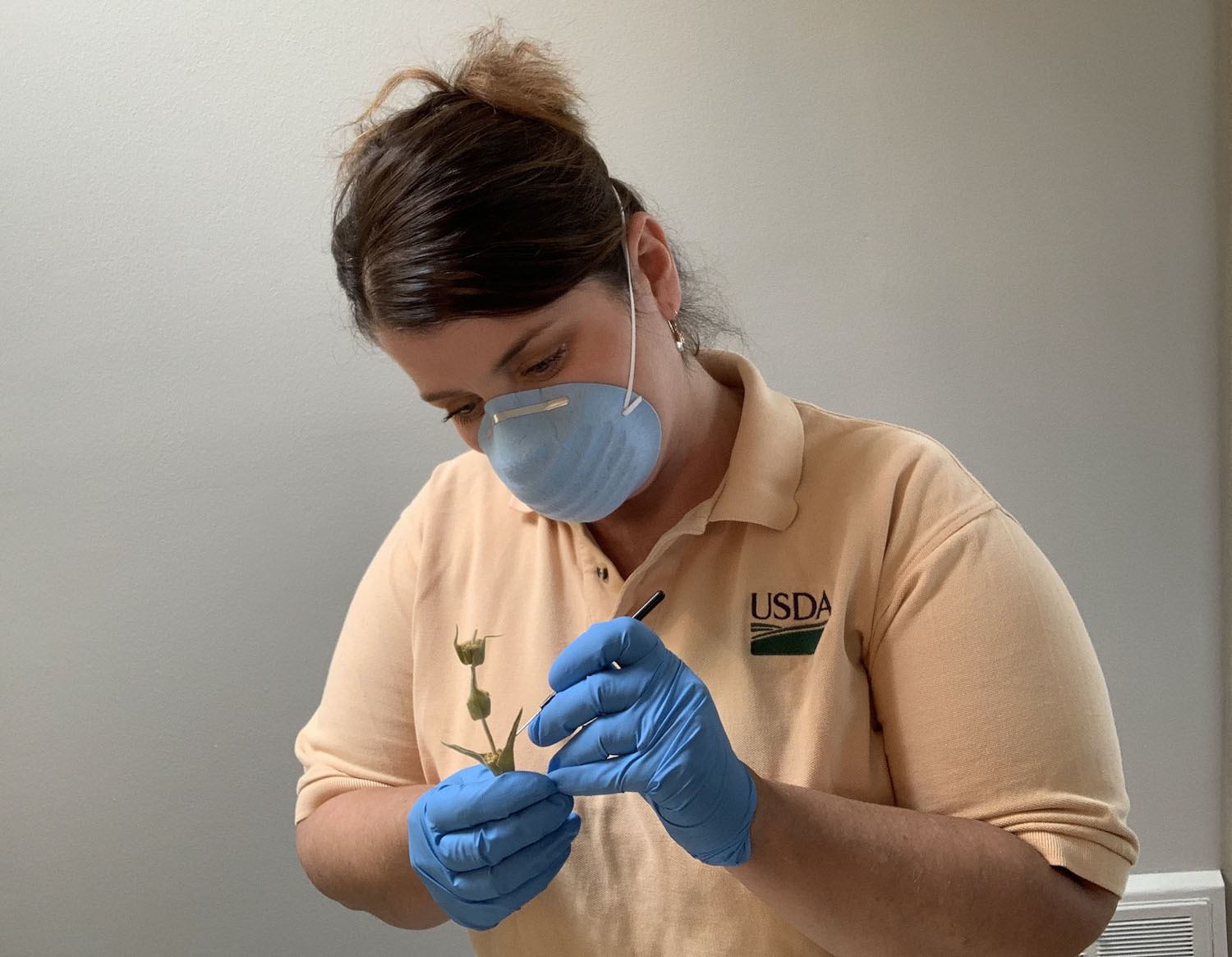
U.S. Department of Agriculture (USDA), Animal and Plant Health Inspection Service, National Identification Services (NIS) botanists coordinate the identification of plant pests in support of USDA’s regulatory programs. APHIS botanists, like this one, are stationed around the United States ready to provide timely identification services to help USDA respond to plant pest emergencies.
An early concern appears to be a purple coating, possibly insecticide or fungicide, that appeared on some of the seeds. An Iowa agriculture official told Reuters that the coating could damage crops if it’s introduced in a garden or field that doesn’t tolerate those treatments.
Another concern is that the seeds could be invasive species, which could displace native plants, and compete for resources. Jacob Barney, a plant scientist at Virginia Tech, pointed out that gardeners introduced Japanese knotweed and kudzu to America, the latter of which was originally thought to restore dry, desiccated soils. It’s now a ubiquitous, unstoppable weed that grows across the Southern states.
Morning glories and mustard, two of the species identified by USDA, can be “really terrible weeds,” and similarly have the potential to spread and ruin home gardens, Barney said.
The real risk the seeds pose, he added, is that they could introduce new diseases in the form of plant pathogens inside the seed, or insects that are harbored in debris in the package. The cabbage, for instance, could be carrying a new strain of black leg, an infection that shows in the roots and black cankers all over the plant and “melts the crop,” said Jay Pscheidt, a plant pathologist at Oregon State University. Meanwhile, mint, another of the mystery seeds, can spread verticilium wilt, a long-term pathogen that lives in soils for decades.
“There are fungi, bacteria, and viruses, all of which can be transmitted by seeds. All these different pathogens that we don’t know about, that China could have, and that we’re unaware of, could devastate whatever industries we have here,” such as Oregon’s cabbage seed and mint farms, Pscheidt said. “The more packets that come in, the more it elevates the risk.”
How bad could it get? Some fungi and diseases, like chestnut blight, decimated plant species after they arrived in the U.S. from East Asia. Since the 1990s, the same fungal infection that caused the Irish potato famine has been found in the U.S., Pscheidt added.
“There are fungi, bacteria, and viruses, all of which can be transmitted by seeds. All these different pathogens that we’re unaware of, could devastate whatever industries we have here.”
That wouldn’t be so concerning to plant scientists if the potentially risky seeds weren’t in the hands of so many people across the country. A couple of home gardeners, here or there, planting infected seeds pose somewhat limited risk to the U.S. agricultural system as a whole. But gardeners in every region, all over America, planting seeds of unknown origin with little oversight? That kind of scale sounds unusual and possibly deliberate to plant scientists like Barney, who thinks the number of packets distributed across the U.S. and other countries, “seems like more than a mistake.”
And the decision to send seeds stumps brushing experts like Chris McCabe, too. Typically, brushers send off lightweight items that don’t draw too much attention. Seeds, however, get screened and tested by government officials. At that point, the whole plan to bolster seller ratings starts to fall apart, McCabe says, because it draws scrutiny, and could prompt Amazon to detect and then delete the fake reviews.
That all leads back to the question of why. None of the seeds that arrived in U.S. mailboxes represent major commercial crops in China, according to official agricultural data. So it doesn’t seem likely that this is an attempt to disrupt the U.S. industrial agriculture system via innocent home gardener.
Perhaps it is instead an effort to passively sell America, where horticulture is a nearly $14 billion industry, on home garden supplies from China.
Increasingly, agriculture officials say, home garden supplies are bought online and imported from other countries. “The a-ha moment I really had here is how much seed people are buying from other countries,” the Iowa seed control official told Reuters. “I have been simply amazed, when I talk to people, how they say the other seed they’ve bought from China is fine.”
None of the seeds that arrived in U.S. mailboxes represent major commercial crops in China, so it doesn’t seem likely that this is an attempt to disrupt the U.S. agricultural system.
Cecilia Sequeira, an APHIS spokesperson, said the agency inspects imported plants and seeds, but that Customs and Border Protection enforces APHIS standards at ports of entry and international mail facilities. In recent years, the volume of international mail has increased and made it more challenging for the agencies to “interdict noncompliant packages,” she said in a statement.
The onus is on the importer of record—the official term for someone who buys a foreign plant, whether they’re running a nursery or just surfing for cheap seeds on Amazon—to obtain phytosanitary certificates that prove the plant material is safe to enter the country. Pests and plant diseases cost the United States around $40 billion in crop losses, and damages, and eradication and containment efforts every year.
Sequeira urged home gardeners to be cautious about buying seeds online, noting the difficulty in obtaining their provenance from third-party sellers. The department encourages them to buy from “a reputable source,” like a domestic nursery that “handles the importing.” When in doubt, gardeners should report anything unusual to state authorities, or consult a 1,436-page planting manual.
“In this case, these people didn’t request these items,” Sequeira said. “They had no idea they were coming, and then they reported it. So they did everything right.”
But suppose there was a Chinese company that wanted to introduce a new crop to American home gardens, or a hardy weed that could only be knocked out by a specific kind of pesticide, and wanted to avoid all those checks. It could take weeks to identify the seller accounts behind the brushing scheme, McCabe estimates, a process that could take even longer during the pandemic—and then, “boots on the ground” to figure out who’s actually manufacturing the seeds.
“It might help some Chinese company that’s marketing their varieties, to say they’re doing well in the United States.”
Could there be some kind of nefarious criminality behind all this? Could seed sellers—black market, or official—be using Amazon and other e-commerce platforms as a new back door into the American farm economy?
The likelihood is slim, plant scientists say.
“It’s a bit like the president’s idea that China launched Covid-19 out of this secret lab in Wuhan,” said Carl Pray, a Rutgers professor who specializes in agriculture science and technology in China and other foreign countries.
Several years ago, Pray suggested that America was a “natural” target for Chinese seed breeders, who could steal genomes and skirt years of costly research. After all, it happened in rural America in 2011. (If you haven’t read the tale, it’s quite a caper. It features microwave popcorn boxes, rental cars, the FBI, and hundreds of ears of corn, among other sordid details. ) Pray said it’s possible, but “pretty highly unlikely,” that what’s happening now is in a similar vein.
Why? Some of the seeds have real economic value, like mustard, which is an important oilseed, or cabbage, which is an important vegetable crop in China. But the other herbs, he said, aren’t used much at all.
“It might help some Chinese company that’s marketing their varieties, to say they’re doing well in the United States,” Pray said. “But that’s really the only thing I can think of.”
